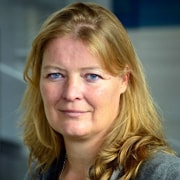More than 500 sustainability leaders came together in Montreux for the World Business Council for Sustainable Development (WBCSD) Delegate Meeting. Marjolijn Versteegden, Arcadis’ Global Solution Director for Smart Sustainable Buildings, shares her key observations …
Taxonomy is too taxing
There was a significant amount of attention afforded to the topic of ESG reporting. As regulations continue to change, non-financial reporting is taking up significant time and resource, especially where companies have assets across multiple geographies with different standards and measures in place.
Many companies don’t know where to start, or how to efficiently report their performance. So, whilst there is an opportunity for organizations, like Arcadis, to share expertise in terms of global and local reporting strategies, automated and digital reporting, it’s clear the WBCSD can lend its influence towards the creation of a global standard for norms and regulations.
With a truly consistent approach, reporting would become quicker and less arduous, and the data itself – now standardized – would deliver enormous benefits in benchmarking and capturing best practice. This would allow us to spend time on delivering improvements rather than reporting them.
Industry and government need to work in tandem
Another topic discussed was the friction between short term capacity and long-term aspirations. Renewable energy offers an obvious and potentially immediate solution to reducing operational carbon. Unfortunately, those companies operating a global footprint experience significant differences in the availability and reliability of renewable energy across different countries.
While the intent and aspiration are positive, regional differences add complexity in planning portfolio-wide investments and can even pose significant risks to business continuity and – in the case of some industries – human and environmental safety.
There is a similar, albeit less dramatic, story at play too regarding Electric Vehicles (EVs). Huge variance in the availability of charging infrastructure is an obstacle to transforming company vehicle fleets, adding complexity to designing and implementing global – or even regional – procurement strategies.
These examples present a policy conflict. As governments push organizations to invest in sustainability and hit net zero targets, those companies are being hamstrung by the lack of investment in essential green infrastructure.
It’s clear that government and industry both have a role to play, that targets need to be balanced, but to enable this, the private sector must come together as a collective. We need to work as one and build a business case for enhanced policy engagement.

Putting planet before profit
There is no archetypal delegate of the WBCSD, and that diversity is one of its key strengths. Across the breadth of presentations and workshops there is an open-ness to share knowledge and experience. What often resonates are insights from delegates that are far from your own peer group.
One such example was a presentation from a sustainability director for a global household and consumer products brand. Building on the point above about working as one, they spoke to a significant shift in the move to circularity, where their company – alongside their competitors – influenced their supply chain to become more sustainable.
Rather than one company driving that change alone, at great individual cost, there was collaboration in the competitor group to decide to identify and develop sustainable solutions to reduce the carbon footprint across their shared supply chain, with a focus on recycling and reuse. This saw significant innovations in packaging across all products, ensuring consumers were getting a more sustainable product, regardless of the brand they chose, and without them having to make a cost-benefit decision. The choice to be green was taken out of their hands.
This really brings to life how when we move as one, we create the biggest impact.





